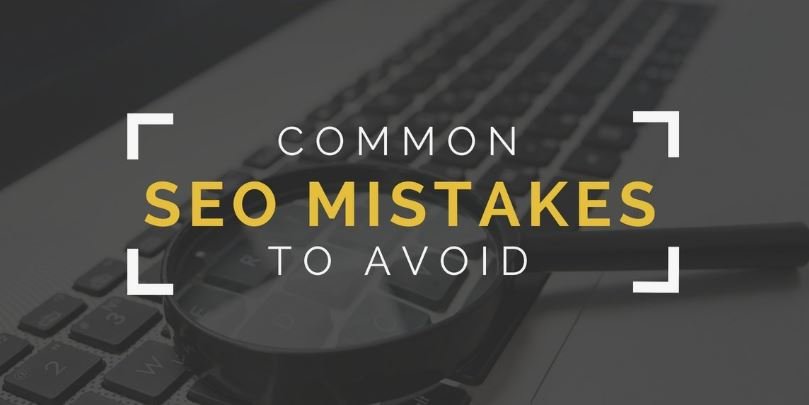Search engine optimization (SEO) is crucial for improving the visibility of your website. However, despite best efforts, many websites still struggle to rank well on search engines. The problem often stems from common SEO mistakes that are easily avoidable. Understanding these missteps is key to rectifying them and improving your site’s performance using the Oceanside search engine optimization agency.
1. Failing to Target the Right Keywords
Selecting appropriate keywords is foundational to effective SEO. If you’re targeting broad or irrelevant keywords, search engines will find it difficult to categorize your website. This mistake not only reduces your ranking potential but also drives less qualified traffic to your site.
How to fix it: Instead of using generic keywords, focus on long-tail, specific keywords that match your content. Tools like Google Keyword Planner or SEMrush can help you identify what your audience is searching for, leading to better alignment between your content and user intent.
2. Neglecting Mobile Optimization
With mobile devices being a primary means of internet access, ensuring your website is mobile-friendly is no longer optional—it’s essential. A site that isn’t optimized for mobile will not only frustrate users but will also suffer from poor search rankings due to Google’s mobile-first indexing.
How to fix it: Make sure your site uses responsive design, allowing it to adapt to various screen sizes and provide an optimal user experience across all devices. Use Google’s Mobile-Friendly Test tool to check your site’s compatibility.
3. Overlooking Page Speed
Page speed plays a significant role in both user experience and SEO rankings. Slow-loading pages lead to higher bounce rates, signaling to search engines that users are dissatisfied, which in turn lowers your rankings.
How to fix it: Optimize your site by compressing images, leveraging browser caching, and minimizing unnecessary code. Tools like Google PageSpeed Insights can help you identify what’s slowing your site down and provide recommendations for improvement.
4. Publishing Low-Quality Content
Content is still king when it comes to SEO. Poorly written or irrelevant content will not engage users or earn the backlinks needed to improve your domain authority. Worse still, low-quality content can lead to a high bounce rate and lower rankings.
How to fix it: Prioritize producing well-researched, valuable, and engaging content that meets the needs of your audience. Structure it properly with headings, bullet points, and concise paragraphs for easier readability. Regularly update and refresh your content to ensure it remains relevant.
5. Skipping Internal Links
Internal linking plays an important role in SEO, yet many webmasters either forget to use them or fail to use them effectively. Internal links not only improve navigation but also help search engines understand the structure and hierarchy of your site.
How to fix it: Strategically include internal links within your content to direct users to related pages. This keeps users on your site longer, reduces bounce rates, and increases the visibility of more of your site’s content.
6. Neglecting Meta Descriptions
Meta descriptions are your chance to tell both users and search engines what your page is about. Missing or poorly written meta descriptions reduce click-through rates and can impact your ranking.
How to fix it: Write compelling, keyword-rich meta descriptions for every page. Make sure they accurately summarize the content and entice users to click through from search results.
7. Leaving Broken Links Unfixed
Broken links harm the user experience and create a negative impression of your site. Search engines view these as a sign of poor maintenance, which can lead to ranking penalties.
How to fix it: Regularly audit your site for broken links using tools like Screaming Frog or Google Search Console, and replace or remove them promptly.
8. Failing to Update Content Regularly
SEO is not a one-time effort. Websites with outdated content appear neglected, which negatively impacts both user engagement and search engine rankings. Regular content updates are crucial to signaling to search engines that your site is active and relevant.
How to fix it: Set up a content calendar and refresh your most important pages periodically. Ensure that all your content is up-to-date, accurate, and in line with current trends or industry practices.
9. Ignoring Analytics Data
Without proper analytics, you’re essentially guessing at what works and what doesn’t. Analytics platforms such as Google Analytics provide valuable insights into user behavior, traffic sources, and the effectiveness of your SEO strategy.
How to fix it: Regularly review your site’s analytics data to identify strengths and weaknesses. This allows you to make data-driven adjustments to your SEO strategy, such as refining keyword targeting, optimizing high-bounce pages, or improving underperforming content.
10. Forgetting to Optimize Images
Images are important for creating engaging content, but they can also slow down your site if not properly optimized. Large, uncompressed images increase page load time, hurting both the user experience and your rankings.
How to fix it: Always compress images before uploading them to your site. Use descriptive, keyword-rich file names and add alt tags to help search engines better understand the content of your images.
Conclusion
Achieving high search engine rankings requires continuous effort and vigilance. Avoiding these 10 common SEO mistakes can significantly improve your site’s visibility and drive more organic traffic. Focus on the user experience, continually optimize your site, and stay updated on the search engine optimization agency’s best practices to maintain a competitive edge in the ever-changing digital landscape.
